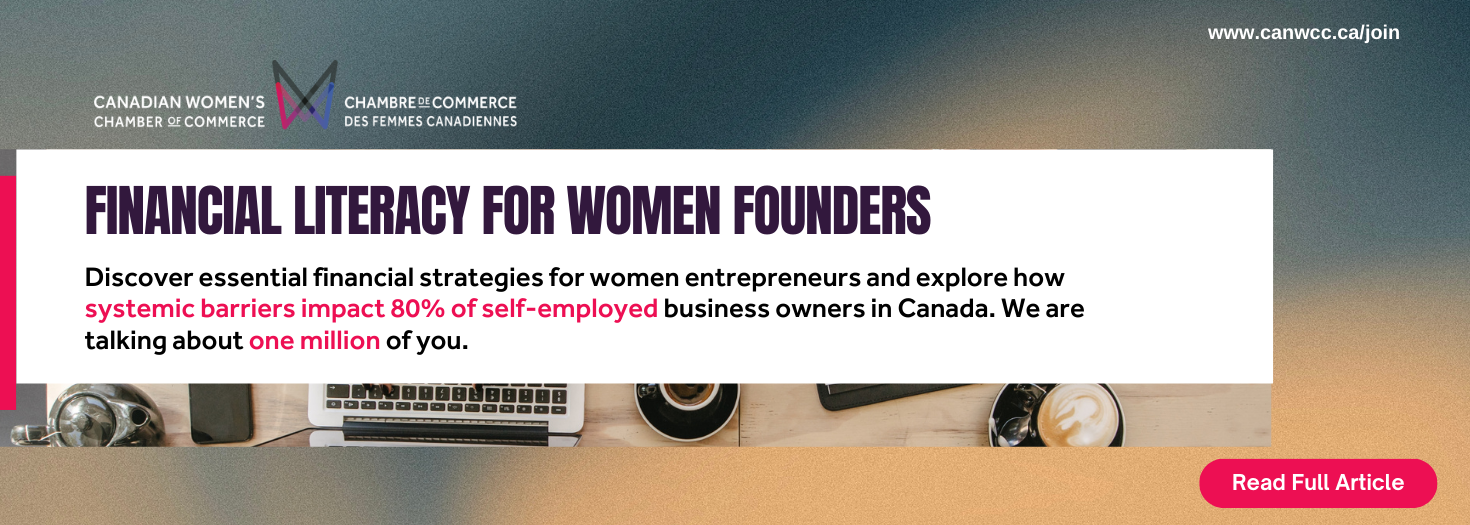Financial Literacy for Women Founders
It’s a myth that women aren’t good at numbers (we’ve all seen or read Hidden Figures at LEAST once by now). In households across every continent, women manage the household budget and purse, and are reported to make 85% of family purchases. Nevertheless, women have only had access to credit cards for approximately 50 years.
One of the most important things women can do to create endless opportunities for themselves is to ensure good financial literacy and be actively working on having a healthy financial posture.
Benefits of Business Ownership
Business ownership is an excellent pathway for women to earn competitive remuneration that’s in line with their professional and lived experience. The great news is that if you own a business, you’re likely already a natural at all this.
If your business doesn’t have a forecast and financial plan, that is a good place to start. There is plenty of help available if you need it, coming in the form of paid consultants, mentors, educational programs, peer-to-peer coaching, or more.
Even though most women are fiscally very savvy and run a tight ship at the office, they’ll be the first to tell you that good financial advice is worth investing in, as it can easily pay for itself. An experienced accountant or financial advisor can help you maximize tax credits based on how you have yourself and your business set up.
It can be very difficult to get a loan or other investment without a financially healthy business. Fundraising can have its unique challenges, especially for women and other equity-deserving entrepreneurs, which impact their ability to generate capital, profits, and growth.
Setting Yourself Up for Success
Just like your business, your personal life needs a budget, an investment plan, a plan to create an operating reserve, and efficient cost management. Financial health is holistic; if you have one half of the boat fully loaded and the other side neglected, you’re in for a bumpy ride. But if you can do it with one, you can do it with the other.
In startup mode, many founders aren’t able to pay themselves. It’s part of the journey, but once you can get on a path to being paid, you’ll want to set it up so your business is giving back to you. Ensure your personal income needs are met as well as benefits and the opportunity to contribute actively to savings.
Be diligent in working on personal finances separately from your business finances, no matter if you’re a nationally-incorporated for-profit business or a sole proprietorship. It doesn’t matter whether it’s your person or your business declaring bankruptcy, there’s a big impact on your ability to start another business again in the future, potentially impacting your ability to support yourself, support dependants, retire in comfort, or more.
Always Be Learning
Certified Professional Accountants (CPAs) are required to be continually learning in order to keep their certification. Continuing Professional Development (CPD) courses allow them to stay up to date on the continually-changing landscape of finance, ensuring their customers receive appropriate and accurate assistance.
So be like a CPA - be continually learning, because tax law and government policy are always changing. Sign up to the right newsletters, and keep an eye out for events like Financially Literate AF! by the Canadian Women’s Chamber of Commerce where you can listen and learn about what’s new in finance, plus topics you may never have heard about before.
Another hot option - you can learn more about bias in investor pitch Q&As and how to beat it by taking a course such as Flip the Script, which includes access to an AI-enabled simulation environment for endless practice and feedback on your own schedule.
Your Economic Equity
Other factors that impact your financial health - factors that women specifically should be financially literate about - include systemic barriers. For instance, are you aware that of the 1.2 million women business owners, only 200,000 are SMBs? The other 1 million are self-employed women who do not have paid employees - that’s 80% of all women business owners in Canada!
However, self-employed Canadian women are unable to access many government policies and programs because policy is written and programs are designed for SMBs. That’s where organizations like the Canadian Women’s Chamber of Commerce or CanWCC’s project The Alliance come in, organizations that are working on this and other issues that specifically impact women’s entrepreneurship and economic equity.
Complete an act of advocacy on behalf of your own financial future by joining as a free or business member today.
Flip the Script is funded by the Government of Canada through a grant from Innovation, Science and Economic Development (ISED)’s Women’s Entrepreneurship Strategy.












